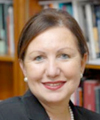2013-2014 Women's & Gender Studies Forum:
Freedom, Personhood, and Justice
sponsored by Lectures and Forums and Women's and Gender Studies
How do critiques of racism lead us to see justice differently? What does a feminist critique of justice teach us to question? Our program is meant to stimulate ideas about justice and democracy through an exploration of the lived and legal experience of norms. The series will foreground the nature of the problems of racism, sexism, and other systems of exclusion. The structure of our inquiry is pragmatic, investigating societal practices that strive for the ideals of equality, fairness, unbiased thinking, freedom, and liberty, among other related concepts.
Wednesday, Sept. 18: Eduardo Mendieta Dignity, Communicative Freedom, and the Law Miller Forum, Moyer Hall, 7 p.m. |
|
 |
Eduardo Mendieta, Professor of Philosophy at Stony Brook University, was born in Colombia, but raised in the United States. Over the last decade he has edited about a dozen books dealing with contemporary Latin American philosophy, the Frankfurt School, and issues relating to religion, globalization, and global justice. His last book is entitled Global Fragments: Globalizations, Latin Americanisms, and Critical Theory (SUNY, 2007). He also recently published a book of interviews with radical philosopher and prison activist Angela Y. Davis, dealing with Abu Ghraib, mass incarceration in the United States, and torture as a weapon of the state. The book is entitled Abolition Democracy: Beyond Empire, Torture and War (Seven Stories Press, 2006). |
Tuesday, Oct. 22: George Yancy Negating Black Personhood through the White Gaze Miller Forum, Moyer Hall, 7 p.m. |
|
 |
George Yancy, Professor of Philosophy and Coordinator of the Critical Race Theory Series, Duquesne University, is particularly interested in the formation of African-American philosophical thought as articulated within the social context and historical space of anti-Black racism, African-American agency, and identity formation. Within this context his work also explores Black Erlebnis, or the lived experience of Black people, which raises important questions regarding Black subjectivity, modes of Black spatial mobility, and embodied resistance. As Co-Editor of The American Philosophical Association Newsletter on Philosophy and the Black Experience, he firmly believes in the significance of black philosophical voices, and black knowledge production, as sites of conceptual and existential transformative possibilities. |
Thursday, Nov. 14: Lewis Gordon Decolonizing Freedom, Personhood, and Justice from the Perspective of Africana Philosophy Miller Forum, Moyer Hall, 7 p.m. |
|
 |
Lewis Gordon, Professor of Africana Studies, Judaic Studies, and Philosophy at the University of Connecticut at Storrs, is President of the Caribbean Philosophical Association, Nelson Mandela Visiting Professor at Rhodes University in South Africa, and Europhilosophy Visiting Chair at Toulouse University in France. He is the former Director of both the Center for Afro-Jewish Studies and the Institute for the Study of Race and Social Thought at Temple University. His books include Her Majesty's Other Children: Sketches of Racism in a Neocolonial Age (Rowman & Littlefield, 1997), which won the Gustavus Myer Award for Outstanding Book on Human Rights in the United States, and An Introduction to Africana Philosophy (Cambridge University Press, 2008). |
Tuesday, March 11: Barbara Crossette Inequality and Violence: The Wide World of Women Miller Forum, Moyer Hall, 7 p.m. Rescheduled from February. |
|
 |
Barbara Crossette, United Nations correspondent for The Nation magazine and former foreign correspondent for The New York Times, is the author of several books on Asia, including So Close to Heaven: The Vanishing Buddhist Kingdoms of the Himalayas (Alfred A. Knopf, 1995) and a collection of travel essays about colonial resort towns that are still attracting visitors more than a century after their creation, The Great Hill Stations of Asia (Westview Press, 1998). In 2000, she wrote a survey of India and Indian-American relations, India: Old Civilization in a New World, for the Foreign Policy Association in New York. She is also the author of India Facing the 21st Century (Indiana University Press, 1993). |
Monday, March 31: Seyla Benhabib The Dilemmas of Human Rights: Ideals and Illusions Danielle Dionne Guerin Memorial Lecture in Women's & Gender Studies Empie Theatre, Baker Center for the Arts, 6 p.m. Reception preceding the lecture at 5 p.m., Baker Center Galleria |
|
 |
The contemporary resurgence of human rights in theory and practice is marked by a much-noted irony. While human rights are widely acknowledged, there is a "justification deficit" in attempts to ground them upon universally acknowledged foundations. Philosophers are divided among those advocating "traditional" (Gewirth; Griffin) vs. "political" accounts (Raz, Beitz and earlier Rawls). In this lecture I will begin with a discourse-theoretic account of human rights which is neither simply traditional nor political, but which incorporates aspects of both. I will then deal with the five puzzles of human rights: 1. Are they moral or legal?; 2. What is the distinction between human rights and civil and political rights?; 3. Who is the "human" in human rights?; 4. What is the status of the Universal Declaration of Human Rights?; 5. How can we account for the unity and diversity of human rights? Seyla Benhabib, Eugene Meyer Professor of Political Science and Philosophy at Yale University, has been Director of Yale's Center for Ethics, Politics, and Economics (2002-2008). She has published seven internationally renowned books in philosophy, feminism, and political science, and edited eight volumes on the topics of communicative ethics, democracy and difference, gender, citizenship, and immigration, identities, allegiances and alliances. Her most recent edited volume, co-authored with Judith Resnik of the Yale Law School, is titled Mobility and Immobility: Gender, Borders, and Citizenship (2009). |
All lectures are free and open to the public.
Thanks to the generosity of the Dionne and Guerin families, the Women's and Gender Studies Program every year sponsors the Danielle Dionne Guerin Memorial Lecture in Women's & Gender Studies. The Lecture features a nationally known speaker addressing some aspect of women's experiences or situations. The lecture is usually held in March, and is free and open to the public.
Past Danielle Dionne Guerin Lecturers have included:
2005 Stephanie Coontz "Marriage: Past, Present, and Future"
Stephanie Coontz teaches history and family studies at The Evergreen State College in Olympia, Washington, and is the Director of Research and Public Education for the Council on Contemporary Families, which she chaired from 2001-04. She is the author of The Way We Never Were: American Families and the Nostalgia Trap (2000), The Way We Really Are: Coming to Terms with America's Changing Families, (1997), and The Social Origins of Private Life: A History of American Families. She is also editor of American Families: A Multicultural Reader (1999). Her Dionne Guerin Lecture was based on her latest book, Marriage, a History, which was selected as one of the best books of 2005 by the Washington Post.
2004 Sally Helgesen "Women’s Leadership in the New Economy"
Sally Helgesen is a leading business and leadership development consultant who has worked with clients around the globe, helping them to understand the major trends that are transforming organizations and figuring out what kind of opportunities those trends present for leaders. She is the author of The Web of Inclusion: Architecture for Building Great Organizations (2005), Thriving in 24/7: Six Strategies for Taming the New World of Work (2001), Everyday Revolutionaries: Working Women and the Transformation of American Life (1998), and The Female Advantage: Women’s Ways of Leadership (1995). Her Dionne Guerin Lecture addressed the advantages of leadership styles more typical of women for organizations operating in the 24/7 economy.
2003 Anne Crittenden "The Price of Motherhood: Why the Most Important Job in the World is still the Least Valued"
Anne Crittenden’s Dionne Guerin Lecture was based on The Price of Motherhood, her widely acclaimed bestseller which was listed by the Chicago Tribune as one of the Top Ten feminist literary works since Betty Friedan’s The Feminine Mystique of 1964. She argued that although women have been liberated, mothers have not. Drawing on hundreds of interviews, and the latest research in economics, family law, sociology, history, and child development, she discussed how mothers are uniquely disadvantaged economically. Women choose to be mothers, but they do not choose the adverse consequences of that decision. Mothers didn’t write the rules that govern how their work is treated - and rendered invisible - by employers, by the law, or by government. Crittenden concluded with some suggestions on how those rules can be changed
2002 Joan Jacobs Brumberg "From Corsets to Body Piercing: How History and Culture Shape the Experiences of American Girls"
Joan Jabobs Brumberg is a Stephen H. Weiss Presidential Fellow and Professor at Cornell University where she teaches history, human development and gender studies. She is author of Fasting Girls: The History of Anorexia Nervosa (1988) which won the John Hope Franklin Prize, the Berkshire Book Prize, the Eileen Basker Prize, and the Watson Davis Prize. Her lecture, which inaugurated the Dionne Guerin Lecture, was based on her widely acclaimed book The Body Project: An Intimate History of American Girls (1998) which was selected by the American Library Association for a Choice Award and also for special notice by Voice of Youth Advocacy. She explained how growing up as a girl has changed over the past one hundred years and why the pressures on girls are now so intense. Popular culture has become more powerful and expectations about physical perfection have increased, so that American girls have come to define themselves more and more through their bodies. Brumberg argued for greater advocacy on behalf of girls to relieve these intense pressures and allow them to value themselves for their potential, their abilities, and the quality of their characters, rather than their appearance.
